AI lead generation: A guide to the best tools and best practices

What if you could automate the time-consuming parts of lead generation—prospecting, qualification, enrichment—while making outreach more precise, personalized, and scalable so you win more deals? This is the power of AI lead generation.
In fact, companies using AI for lead generation have seen conversion rates improve by up to 50%. If AI can help you streamline processes and improve results, you might wonder—what does this actually look like in practice?
This article explores the 9 key AI use cases for lead generation, plus the best AI lead generation tools revenue teams need to automate repetitive tasks, fill pipelines faster, and close more deals.

Reinvent CX with AI agents
What is AI for lead generation?
AI for lead generation is the use of artificial intelligence (AI) technology to automate and optimize the process of identifying, qualifying, and engaging potential customers.
For the 80% of businesses that say their lead generation efforts are only somewhat effective, AI can be a game-changer that totally reshapes how they approach customer acquisition.
By analyzing vast datasets in real time, AI can gather and compile insights to automate repetitive tasks like lead discovery, scoring, and qualification. AI's predictive abilities enable sales teams to pinpoint and prioritize their most promising leads, then scale timely, tailored outreach that's more likely to convert.
The latest innovation are AI agents: autonomous entities that use unstructured data (web behavior, email, social) to identify intent signals in real time and adjust engagement on the fly—promising a new standard in personalization, campaign optimization, and sales performance.
Unlike traditional lead gen processes that are inefficient and often ineffective—AI offers a smarter, faster, and more scalable way to identify, qualify, and engage qualified leads. By saving time and providing fresh, comprehensive insights, AI helps sales teams to focus on nurturing high-value opportunities and win more deals.
Types of AI lead generation tools
AI-driven lead generation tools come in several categories, helping to optimize different stages of the sales funnel from identifying prospects to nurturing them. Here's a quick overview:
- AI lead sourcing tools: Identify, gather, and recommend leads from across the web and social platforms based on intent signals and target personas.
- AI lead enrichment tools: Automatically update lead profiles with fresh or missing data in real time.
- Conversational AI: AI chatbots engage web visitors, qualify leads, set meetings, and route conversations 24/7.
- Predictive lead scoring tools: Prioritize leads based on likelihood to convert by scraping data and scoring leads based on fit, intent, and engagement.
- AI-driven email automation: Craft, personalize, and optimize outreach at scale using generative AI.
- AI-driven CRMs: Streamline workflows, surface insights, forecast pipeline, and recommend actions to guide salespeople.
- Intent detection tools: Detect buying signals based on digital behavior to show search activity and account-level insights.
- Agentic AI: AI agents are autonomous, adaptive, tool-using entities that integrate with CRMs, tools, and other AI. Imagine a data-driven SDR that acts as a bridge between your tools and data to enhance lead nurturing, insights, and performance.
Learn more: AI agents vs chatbots: What's the difference?

Leverage omnichannel AI for customer support
9 use cases for AI lead generation
AI enhances and streamlines lead generation in major ways, streamlining processes for teams while increasing performance. Here are nine of the best ways to use AI for lead generation, including the best AI-driven tools to help you implement these use cases.
1. Refine your ideal customer profile
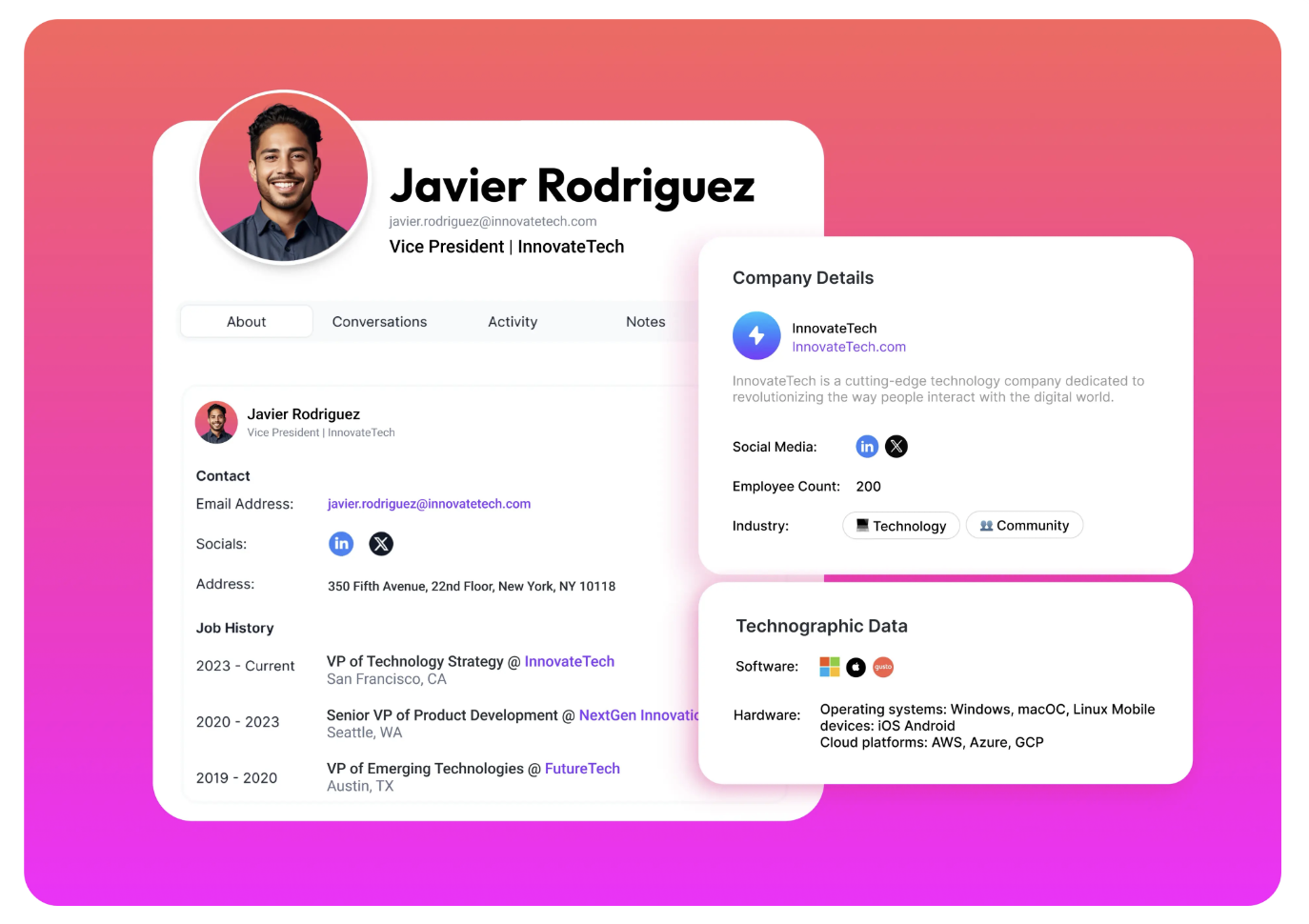
By continuously analyzing data from your CRM, website behavior, social media activity, and real-time intent signals, AI can spot patterns and actionable insights teams can miss. This helps you refine your ideal customer profile (ICP), find new in-market buyers, and always know the highest priority leads.
For example, consider a SaaS company using sales tools with agentic AI. The tool analyzes LinkedIn, CRM activity, and content interactions in real time, revealing that executives who consistently engage with AI customer service blogs are 3x more likely to book a demo. The agentic AI can then automatically enriches the lead profile, adjusts lead scoring, and triggers a tailored outreach sequence without any manual intervention.
🛠️ Best AI lead generation tools: Clearbit, LinkedIn Sales Navigator, ZoomInfo.
2. Automate lead data enrichment
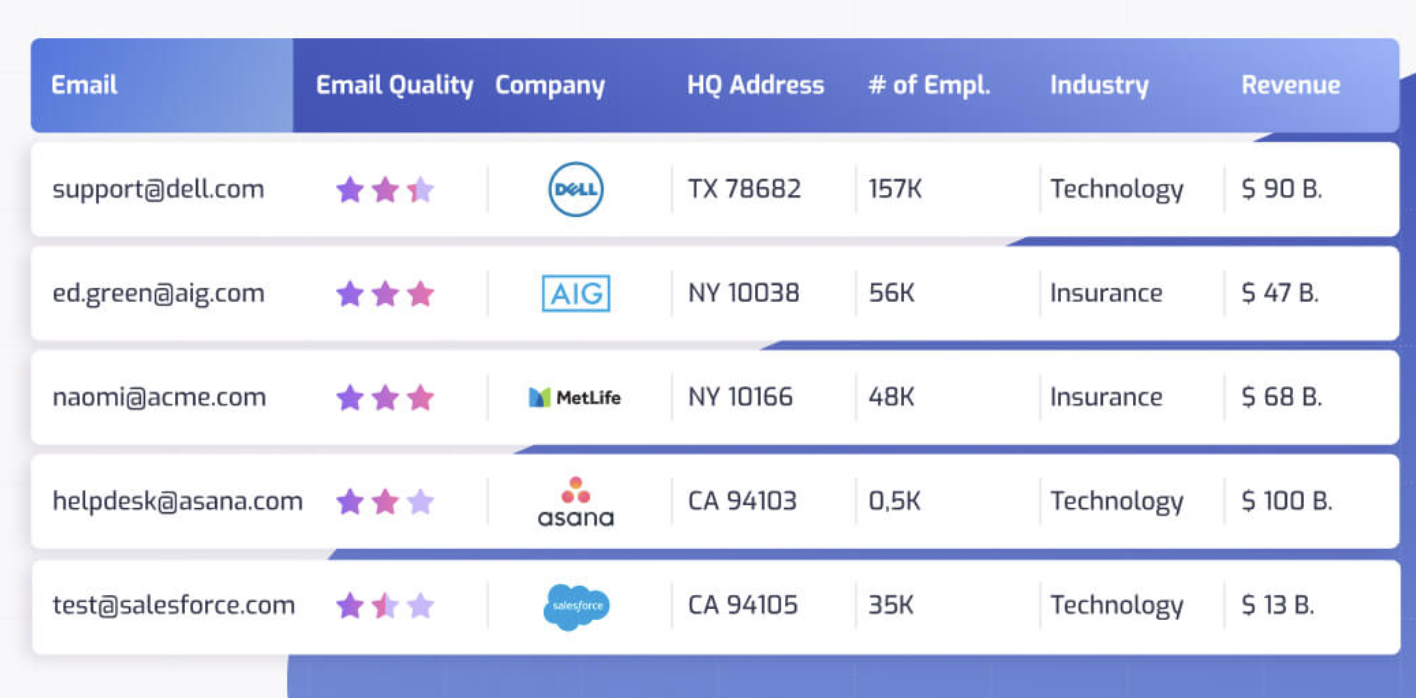
AI streamlines lead enrichment by automatically updating lead profiles in real time using data from sources like social media, website activity, CRM systems, and more. By extracting and compiling data from an exhaustive range of sources automatically, AI gives sales and marketing teams a more complete and accurate view of each lead’s quality without the manual effort.
This can reduce manual data entry by up to 60% to save valuable time for sales teams, while enhancing the precision of lead scoring, segmentation, and prioritization. And using these up-to-date profiles, AI agents can proactively trigger tailored email sequences based on real time intent signals—such as leadership changes, news mentions, or engagement activity—helping sales teams capitalize on opportunities the moment they appear so they can set and close more meetings.
🛠️ Best AI lead generation tools: HubSpot's Breeze Prospecting Agent, Clay, Seamless.AI.
3. Automate lead scoring and qualification
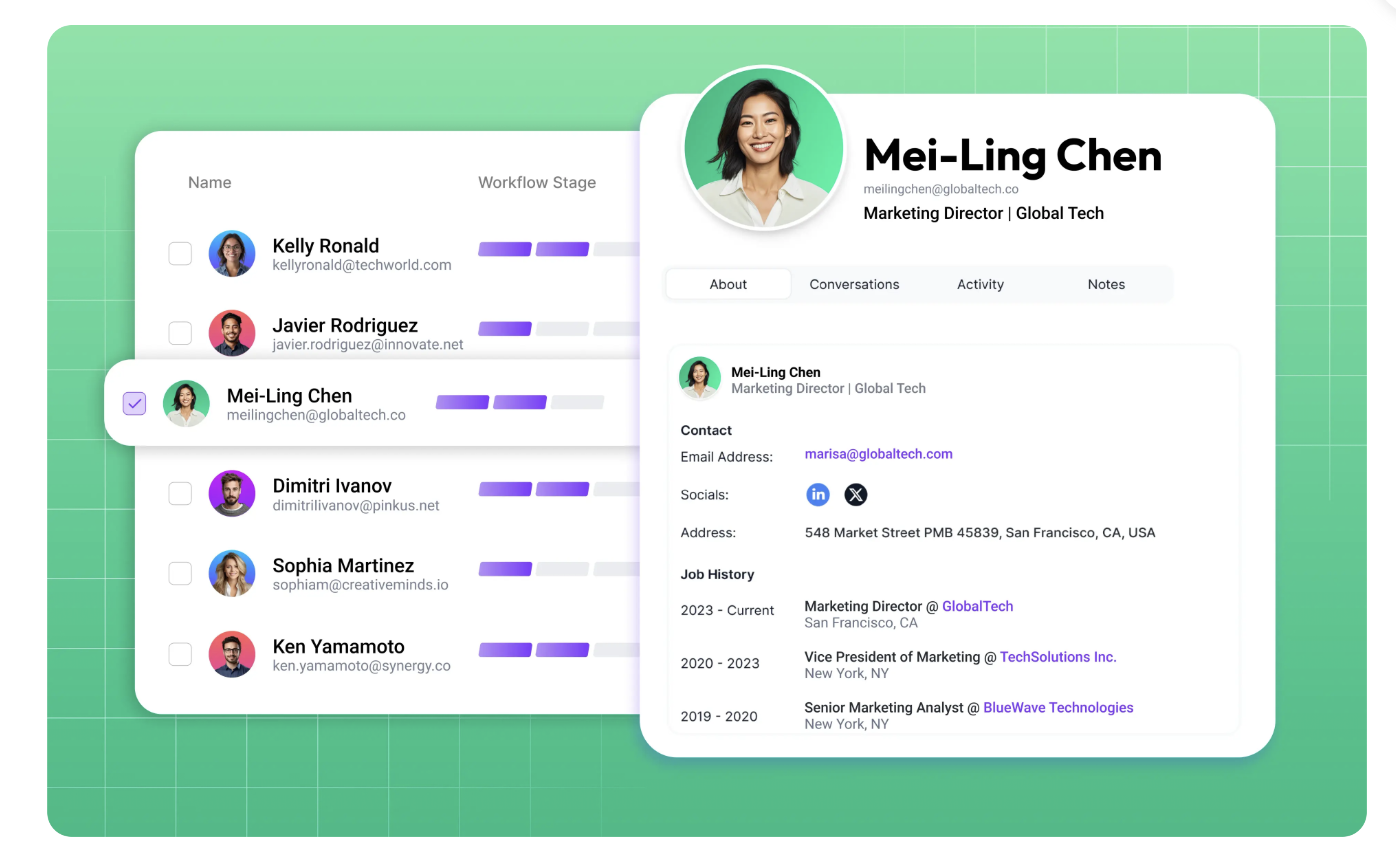
AI can score and rank leads with unparalleled accuracy by analyzing hundreds of factors related to lead fit, intent, and engagement. It can also update lead scores in real time based on the latest omnichannel interactions such as email opens, content views, or job changes. This allows sales teams to spend less time manually qualifying leads while always knowing which leads are the most likely to convert, helping to increase productivity and sales.
🛠️ Best AI lead generation tools: Salesforce Einstein, HubSpot Predictive Lead Scoring, 6sense.
4. Personalize outreach at scale
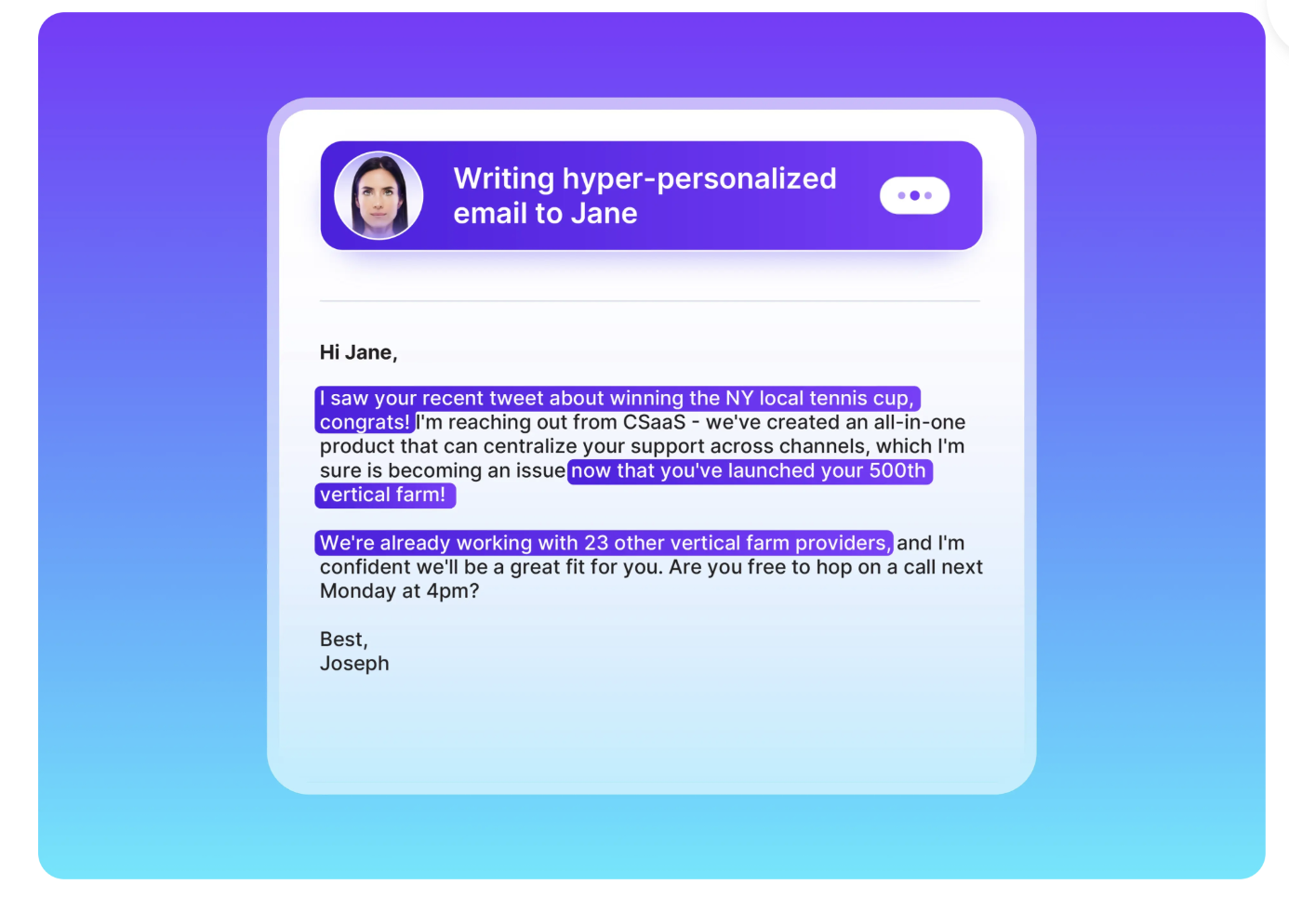
Content tailored to a prospect’s unique needs, role, and stage in the buying journey is crucial to effective lead generation. Using Generative AI tools, sales teams can automate the creation and delivery of these personalized emails and content. This not only saves time for sales teams, but also makes every touchpoint as relevant, timely, and conversion-optimized as possible.
Here are a few ways AI personalizes lead generation content at scale:
Emails: Customizes subject lines, messaging, and offers based on recipient behavior, job function, and recent engagement.
Ads: Dynamically serves variations based on browsing activity, firmographics, or technographic data.
Landing pages: Adapts headlines, CTAs, and content modules based on who’s visiting.
Chatbots: Delivers personalized recommendations and resources during real-time conversations.
For example, if a prospect spends time on a blog about cybersecurity trends, AI can immediately follow up with a relevant whitepaper or case study—advancing them down the funnel without manual effort from sales reps.
🛠️ Best AI lead generation tools: Regie.ai, Seventh Sense, Drift

Leverage omnichannel AI for customer support
5. Automate email campaigns
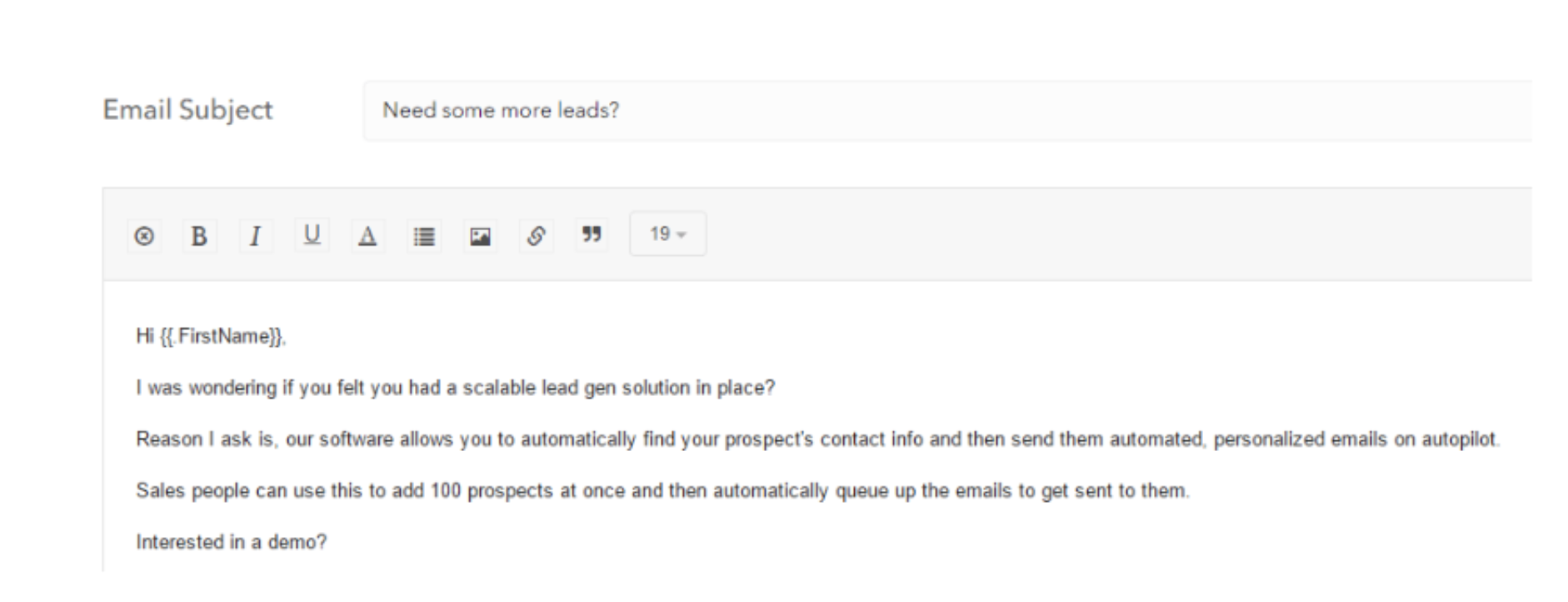
Sales teams can use AI to automate the creation, personalization, and optimization of email outreach. For instance, generative AI tools like ChatGPT can craft compelling subject lines and body text tailored to each recipient in a fraction of the time it takes sales reps. Meanwhile, AI-driven email tools can dynamically adjust email content, timing, and even run A/B tests to boost engagement and conversion rates. In fact, AI-personalized emails have been shown to increase open rates by up to 41% and click-through rates by 14%.
Imagine a CTO downloads a cybersecurity report but never opens it—then later watches a webinar on AI risks. Instead of sticking to a static drip sequence, AI adapts in real time, triggering a follow-up email with risk and compliance-related case studies that align with the prospect’s current interest. This contextual awareness ensures the right message arrives when it matters most, increasing its relevance and the likelihood it gets a response.
🛠️ Best AI lead generation tools: ActiveCampaign, HubSpot Marketing Hub, Mailchimp AI.
6. Use AI chatbots to reach more leads
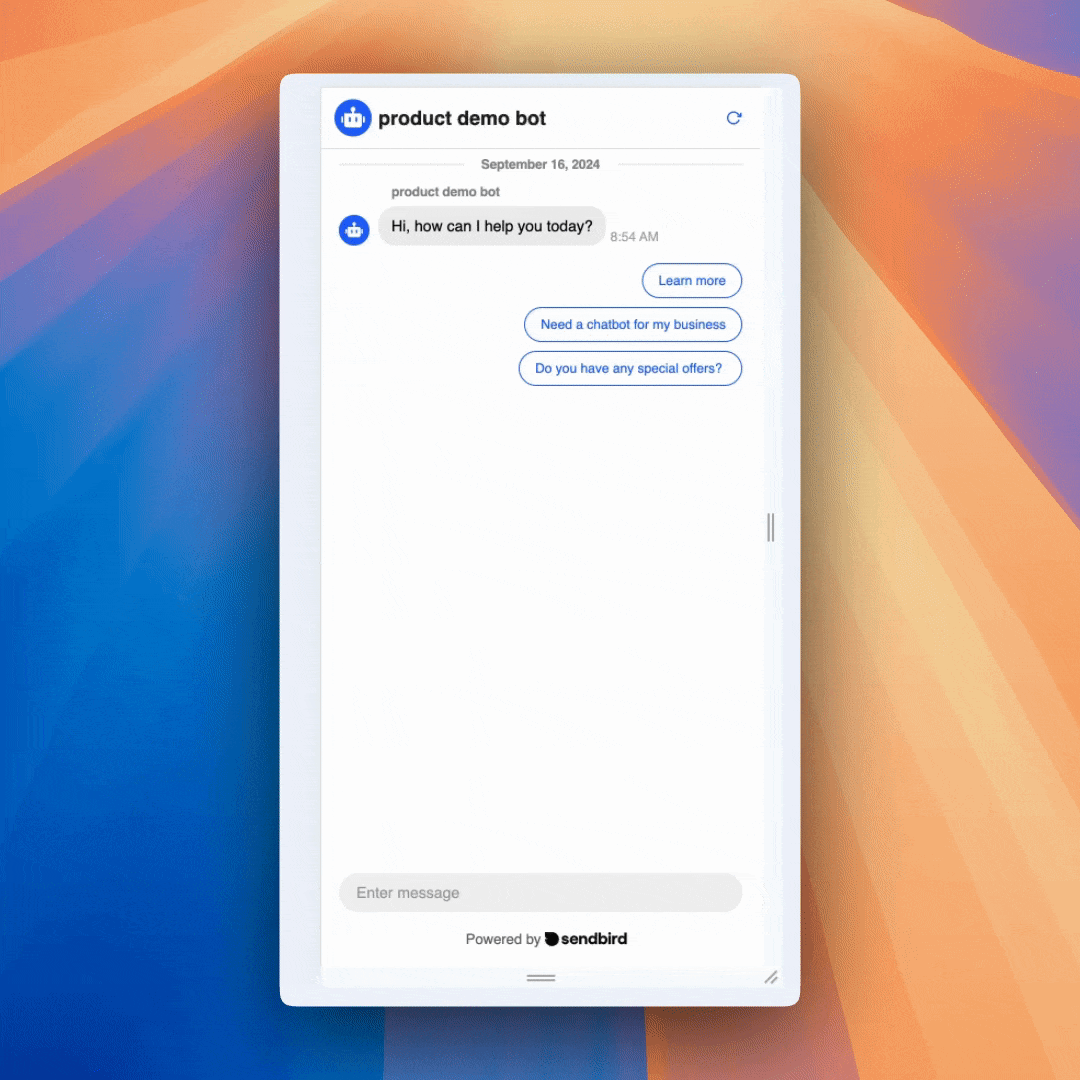
Generative AI chatbots can do more than provide basic customer support. Today, they play a critical role in lead generation, helping to qualify prospects, capture contact information, answer product questions, surface content, even booking meetings or demos. Available 24/7 across websites, mobile apps, email, messaging platforms, these omnipresent AI agents are always ready to engage visitors in a timely, tailored way to move leads down the funnel.
For instance, a website chatbot can detect repeat visits or specific keywords in a conversation using natural language processing, then trigger a lead capture form or pass a high-intent prospect to a sales rep. AI agents enhance this. By remembering past interactions, agentic chatbots can hold a single ongoing conversation with prospects, for a truly seamless experience that elevates engagement and can, according to one study, drive up to a 67% increase in sales-qualified leads.
🛠️ Best AI lead generation tools: Sendbird, Conversica, Drift.
Learn more: AI agents vs chatbots: Key differences explained
7. Get data-driven insights for optimization
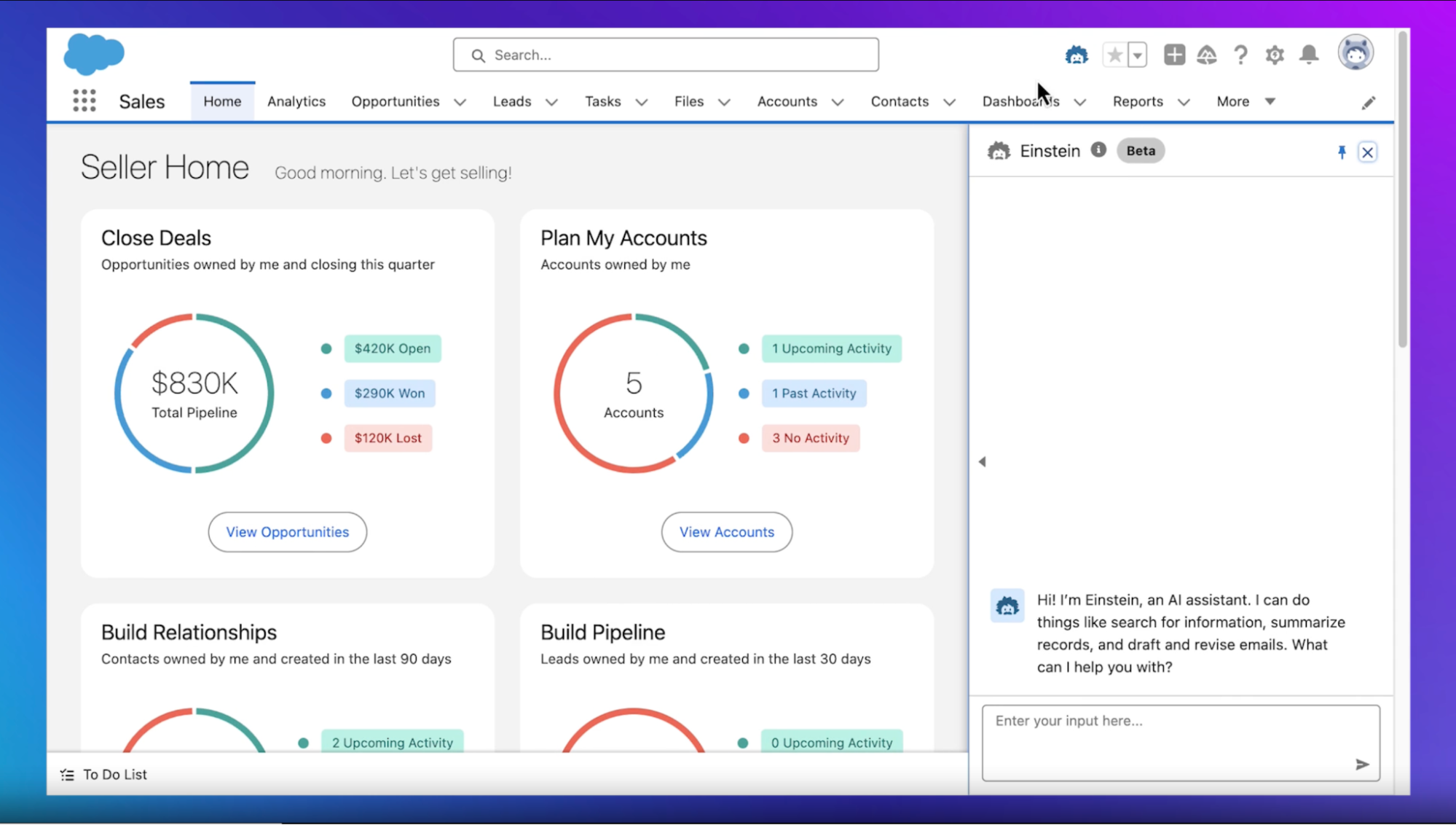
By analyzing vast sets of structured and unstructured data in real time, AI enables sales teams to spot and act on audience insights that would be nearly impossible to identify otherwise. For example, AI could reveal that emails sent on Wednesdays outperform those sent on Mondays. Or, that follow-up messages referencing a prospect’s recent LinkedIn activity are 3x more likely to get a response.
For the 33.3% of teams that say a lack of audience understanding is their biggest challenge in lead generation, AI provides both much needed visibility but also adaptability. Equipped with the most current and comprehensive insights, AI-driven tools can surface insights and suggest ways for teams to optimize everything from lead generation strategies, campaigns, and email outreach based on data instead of guesswork.
🛠️ Best AI lead generation tools: HubSpot's Breeze AI, Reply.io, People.ai.
8. Create tailored video content
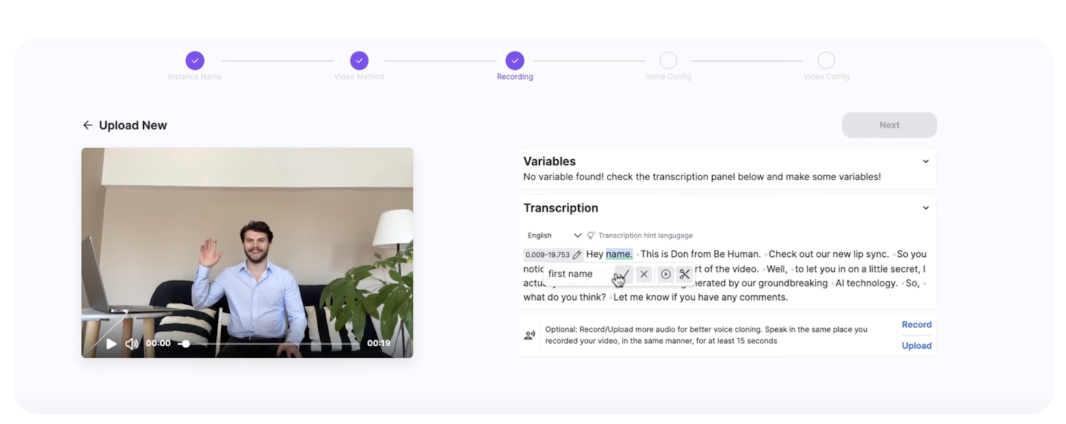
Video is rapidly becoming one of the most effective formats for engaging B2B buyers—offering a more human and memorable experience. At a time when 89% of B2B buyers say the sales experience is just as important as the product or service itself, AI-driven video tools allow teams to scale the creation and delivery of personalized video content that sets their business apart with decision makers.
Using AI video tools, teams can create custom video messages tailored to individual leads or segments in a fraction of the time. Record a single video message once, and AI computer vision can generate a lifelike avatar version of you as a reusable template. To create new outreach content, simply input a script—customized to reflect a lead’s pain points, role, or previous interactions—and the AI generates a new, polished video in seconds.
🛠️ Best AI lead generation tools: Heygen, Synthesia, BHuman.
9. Optimize ad targeting and placement
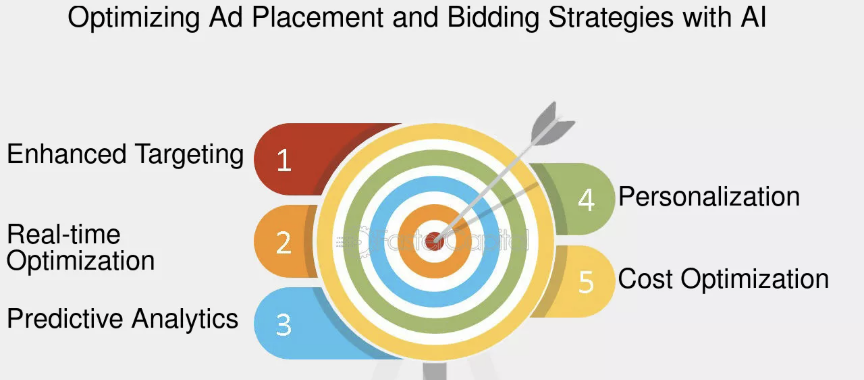
Lead gen teams can use AI to maximize conversions while minimizing ad spend. By continuously analyzing user behavior, engagement, and contextual signals, AI optimizes ad placement and dynamically adjusts bids in real time. It can also intelligently segment audiences based on intent, technographics, or behavioral triggers, matching each prospect and segment with the ideal AI-generated content—helping to actually deliver the right message to the right audience at the right time. Using AI-powered smart bidding has been shown to improve marketing campaign ROI by up to 50%, and reduce customer acquisition costs by as much as 30%.
🛠️ Best AI lead generation tools: Google Ads Smart Bidding, Meta AI for Ads, Adzooma.
Benefits of AI lead generation
AI is a major upgrade to traditional lead generation efforts, making the process faster, more accurate, and more effective for businesses. Here are the key benefits of AI lead generation:
1. Higher lead quality and conversion rates
AI identifies high-quality leads by analyzing vast datasets, using this comprehensive information to improve lead scoring, enrichment, and segmentation to find and convert more the right leads.
2. Personalized targeting and outreach
AI tailors and targets outreach to prospects based on historical data and real-time online activity, improving response rates and engagement to drive more conversions.
3. Lower customer acquisition costs (CAC)
AI optimizes marketing spend by finding and targeting high-intent leads while refining ad placements in real time, reducing costs while improving the likelihood of conversion.
4. Automated data enrichment and lead insights
AI refines and updates lead data continuously using multiple sources—even APIs thanks to AI agents—improving targeting and decision-making with deep analysis of real-time data.
5. Optimized lead nurturing and retargeting
Predictive analytics can determine the best time, channel, and content for lead nurturing and retargeting, considering real-time changes, news events, and more to adapt outreach on the fly to increase sales opportunities by up to 20%.
6. Faster lead qualification
In addition to the predictive capabilities of AI algorithms to qualify leads, AI chatbots (and their spiritual successors, AI agents) can qualify leads as they engage them, even routing sales-ready prospects to sales reps if the right conditions are met to improve sales velocity.
7. Operational efficiency
AI streamlines the manual, time-consuming processes of traditional lead generation such as list building, segmentation, and data entry, freeing reps to focus on high value prospects and getting them to buy.

Automate customer service with AI agents
Best practices for AI lead generation
If you’re considering using AI for lead generation, taking a strategic approach will help set you up for success. Here are a few best practices to guide you on how to use AI lead generation tools to best effect:
1. Identify your needs
Start by assessing your current workflows to identify inefficiencies, bottlenecks, and shortcomings. You can ask questions like:
Where do sales reps spend most of their time?
What tasks are repetitive and time-consuming?
What processes are prone to error?
Once you’ve identified your pain points, the next step is to align these with specific AI use cases. From here, you can seek out AI solutions that address your unique needs.
2. Prioritize data quality
AI is only effective when it has access to high-quality data. You'll want to conduct a data audit to evaluate the quality, accessibility, and governance of your data assets, looking for any missing, outdated, or incomplete data that will undermine AI’s effectiveness.
To ensure data quality, you may need to establish data management and hygiene processes that standardize data entry and ensure accurate, actionable outputs from AI. The end goal is to create an integrated, centralized data infrastructure for AI with clean, standardized datasets that will support your various AI tools at scale.
Related reading: Why enterprise-grade infrastructure is key in the AI agent era
3. Define metrics for success
Next, you'll set specific metrics that allow you to measure the success of your AI lead generation efforts. For example, you might want to increase conversion rates, reduce lead response times, or lower cost per lead. Beyond these hard metrics, also keep an eye on qualitative improvements such as customer experience or time saved for sales reps. These AI benefits are valuable, but may not be measurable right away.
4. Select your AI stack
Now you’re ready to choose the AI lead generation tools that align with your needs and goals. For example, if lead quality is your top concern, look for solutions with AI predictive lead scoring. The same goes for personalized outreach, lead scoring, or other use cases.
As you weight your options for AI solutions, consider factors like:
Reporting and analytics – Does it provide actionable insights?
Data security & compliance – Does it align with industry regulations?
Future capabilities – Can it scale with your business as needs evolve?
Customer support — Does your vendor offer comprehensive support to guide implementation to success?
Additionally, an ideal AI solution will add to efficiency without adding complexity. For example, Sendbird’s AI agent builder offers an intuitive interface that makes it easy for sales and marketing teams to build, customize, and deploy AI agents on websites, apps, email, and support channels like SMS in minutes without coding.
5. Ensure seamless integration
Your chosen AI for lead generation must integrate with your CRM, marketing automation, and analytics platforms. Look for tools with API compatibility for long-term scalability. Trusted AI agents platforms like Sendbird offer white-glove service to help organizations develop, deploy, and scale AI for lead generation safely and effectively.
6. Monitor and optimize
Once you deploy AI, monitor its performance and optimize your AI lead generation strategy with insights. For example, using AI-driven dashboards, you might discover that organic search drives higher conversion rates than paid ads, or that email campaigns bring in more valuable leads despite a longer sales cycle. Using insights, you can increase investment in high-performance channels and tactics, reallocate spend from low-yield channels, and replicate success of specific campaigns or messaging to drive greater ROI.
Bonus tip: Ensure your AI outputs sound as natural, accurate, and human-like as possible. Customer experience is key, so it won't do to have chatbots responses or email copy turning off potential customers. Top AI tools like Sendbird’s AI agent builder make it easy for non-technical teams to monitor and adjust AI’s outputs to optimize for performance and user experience.
AI lead generation: The future is bright, and less effortful
AI is transforming lead generation for the better, automating manual processes to drive efficiency while integrating real-time data to better identify high-value prospects, increase conversions, and increase sales performance.
If you’re looking to build AI agents for lead generation, Sendbird can help. Our robust AI agent platform makes it easy to build AI agents on a foundation of enterprise-grade infrastructure that ensures optimal performance with unmatched adaptability, security, compliance, and scalability.
If you want to learn more about the future of AI, you might enjoy these related resources:











